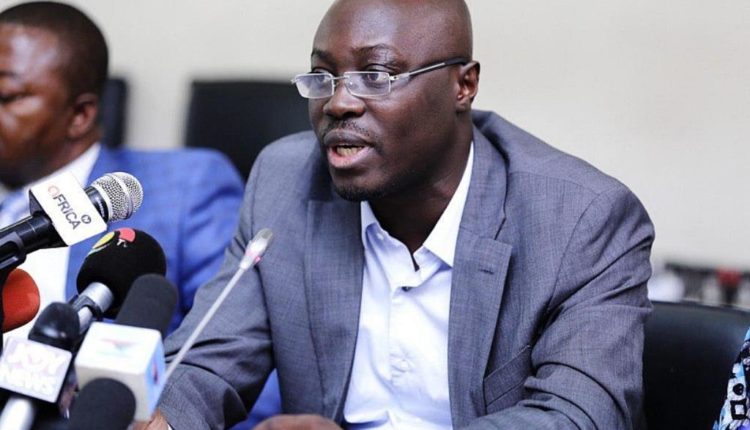Ranking Member on Parliament’s Finance Committee, Dr. Cassiel Ato Forson, has stated that Ghana is going through sovereign insolvency stress which means that the country is not solvent.
According to him, the state of the country’s finances, characterized by unsustainable public debt means that government must consider the option of restructuring its debt.
Dr. Ato Forson indicated that the country’s debt situation has become unsustainable largely due to the government’s refusal to heed the warnings raised by the Minority.
Speaking on PM Express, Dr. Cassiel Ato Forson noted that the country will not receive any support from the IMF if the Fund also confirms that the country’s debt is unsustainable.
He warned that should the Fund confirm this; the government will only receive support if it’s able to undertake debt restructuring.
He suggested that government needs to commence a national discussion on how to make the country’s debt level sustainable.
“Ghana, as we speak, is going through sovereign insolvency stress, we’re simply insolvent. So what we need to do is to take a decision to restructure. But the question is: what kind of restructuring? That is the kind of conversation I believe we have to go in. We have to consider the kind of restructure that we’ll do that will safeguard the economy and preserve us going forward. I believe that is where we’ve gotten to at this stage” he said.
By initiating a dialogue on debt restructuring and engaging experts from academia, civil society and across the political divide, Dr. Ato Forson believes that the government can begin to address some difficult situations that may arise from the IMF bailout.
“Because the first thing is after identifying that the debt is unsustainable, how do you make it sustainable before you get the IMF programme? You need to agree on the debt relief that you will require. If you’ll need 20%, 30%, 40% of your GDP in the form of debt relief, that brings the question, who will bear that burden?
“How are you going to burden share? Are you going to tackle external, domestic or everybody else? Are you going to add official bilateral or not? At that point you need to make a decision and would debt restructuring alone do the trick? Because remember debt restructuring deals only with commercial debt holders” he added.
He indicated that if the government is going to deal with the official bilateral and export credit agencies, then it will need more than debt restructuring. “You will need what we call debt suspension initiative under the common framework”, he suggested.
Risk of not receiving an IMF bailout
Likewise, another panelist on the program, Dr. Theo Acheampong, also concurred that Ghana risks not receiving funding from the International Monetary Fund should it be discovered that the country’s debt is unsustainable.
According to him, because the country has been classified as a high debt distress country by the World Bank, it will be prudent if the managers of the country commence action on debt restructuring before the situation worsens.
The Policy Risk Analyst noted that “giving where we are now with the extra deficit and the extra spending, I personally won’t be surprised if we move up into the next category already being in debt distress which then means that we will have to fundamentally commence a debt restructuring exercise before accessing the IMF financing”.
The World Bank currently classifies Ghana as a high debt distress country as it projects the nation’s debt to Gross Domestic Product (GDP) of 104.6% by the end of 2022.
According to its October 2022 Africa Pulse Report, debt is expected to jump significantly from 76.6% a year earlier, amid a widened government deficit, massive weakening of the cedi, and rising debt service costs.
The Bretton Woods Institution expects the country’s debt to GDP ratio to decline to 99.7% in 2023 before rising to 101.8% of GDP in 2024.


Comments are closed.